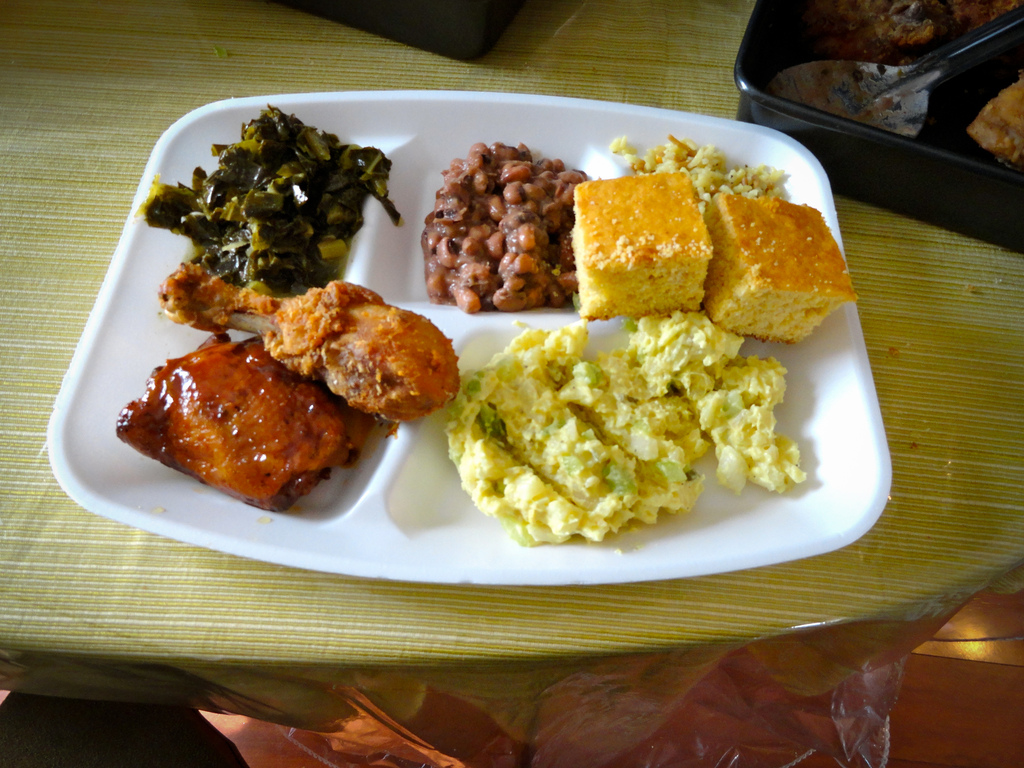Is soul food “the bane of African American health,” or is it a cuisine with a long and complex cultural history?
What if it’s both?
Filmmaker Byron Hurt’s documentary Soul Food Junkies premiering tonight on PBS aims to tell the history of soul food and contextualize collards, peas, and cornbread in the contemporary fight for food justice in communities of color, communities we often call “food deserts.”
Food deserts are by definition low-income communities without supermarkets or grocery stores, where fresh food is a rarity and people suffer from obesity, diabetes, and other health problems. We often blame food deserts themselves for those health problems, but that label can obscure culinary history, not to mention some basic facts. Many poor urban neighborhoods aren’t actually food deserts at all — they’re closer to food swamps full of ready-made and relatively cheap processed items. The “nutritional timberline,” as Karla Cornejo Villavicencio coins it at The New Inquiry, is a real thing.
In Hurt’s film, he interviews a woman who is upset that her local grocery only carries vegetables “that look like they’re having a nervous breakdown.” From PBS:
The idea is that if healthy choices are available, people will buy them. And that works to an extent. But old habits die hard. A 15-year longitudinal study found that upping the number of grocery stores in low-income areas didn’t result in people automatically buying healthier food.
“Just because you build it, doesn’t mean you will change people’s behavior,” study author Barry Popkin, a professor of public health at the University of North Carolina at Chapel Hill, said in a Time magazine article. “Price, quality, accessibility, incentives, they matter too. Every community is different, but new efforts or supplementing existing infrastructure works if they’re accompanied with affordable prices, education, promotion or community collaboration.”
Efforts that only increase the availability of nice organic lettuce don’t do anything to address the personal food culture that drives mealtime choices in these communities. And let’s face it: A lot of food justice work in these communities is done by well-meaning but kind of patronizing white people.
Hurt hopes his film “will be used widely as a discussion starter in communities of color around food consumption, health, wellness, and fitness.” In an interview with the Smithsonian’s Food & Think blog, Hurt said, “I think the film is really resonating with people, especially among African American people because this is the first film that I know of that speaks directly to an African American audience in ways that Food, Inc., Supersize Me, King Corn, The Future of Food, Forks over Knives and other films don’t necessarily speak to people of color. So this is really making people talk.”
Soul Food Junkies airs tonight at 10 p.m. on PBS.




